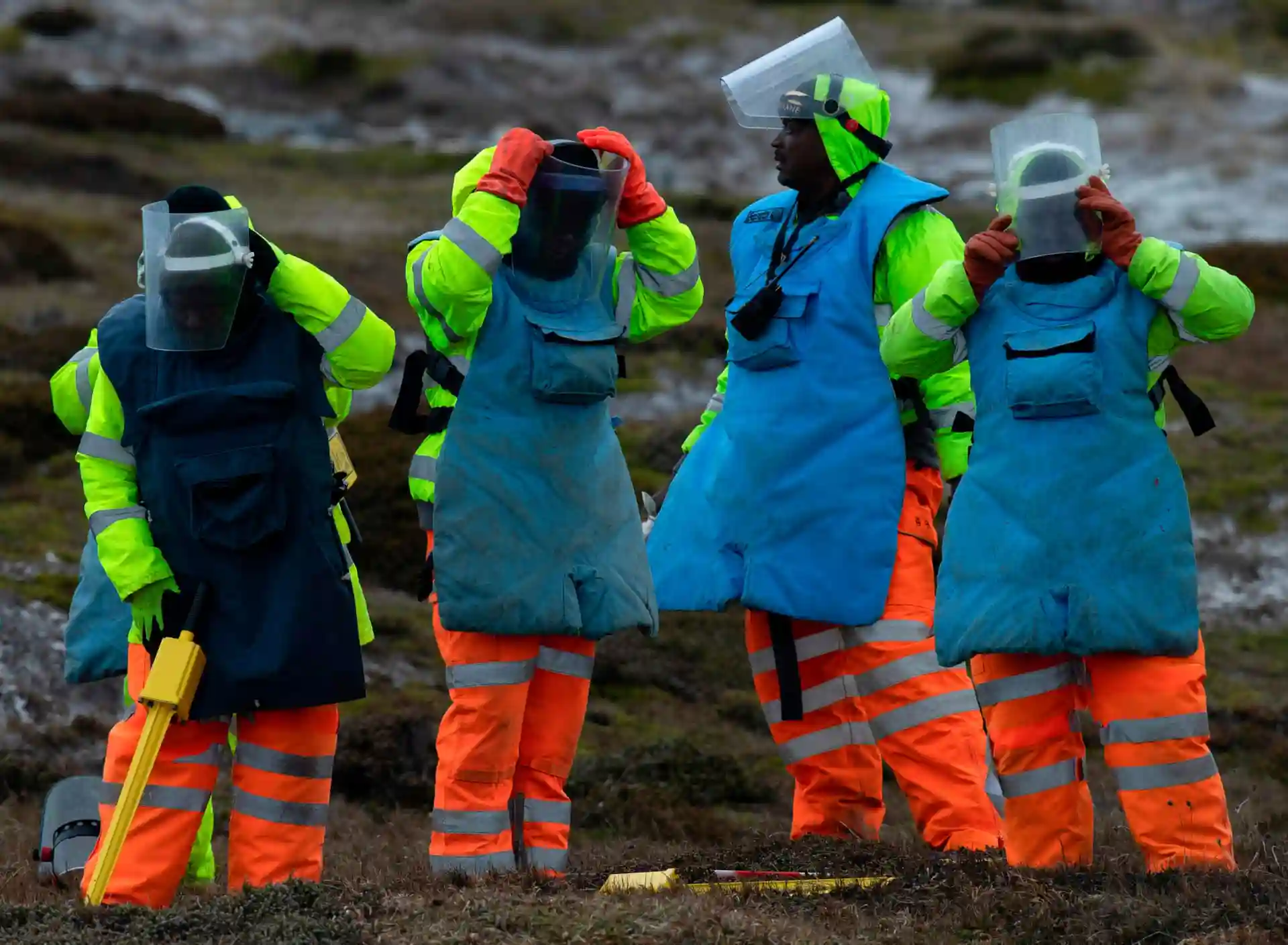Job Tawengwa, a de-mining and explosive ordnance disposal (EOD) expert from Harare, Zimbabwe, says there is always high risk associated with his job.
He has worked in various conflict zones since 1998, including Mozambique, Iraq, Lebanon, Afghanistan and South Sudan. For Tawengwa, the attraction of his job was the high salaries earned by de-miners, which were 10 times higher than what professionals were getting in Zimbabwe. Tangwena told Al Jazeera:
We encountered armed gunmen and militia everywhere we went who often erected roadblocks and you had to negotiate your way through them. The risk is always there on the road from anti-tank mines and anti-personnel mines and you can’t stray off the road.
Ahead of South Sudan’s Independence Day celebrations on July 9, 2011, massive explosions rocked a building in the capital, Juba, close to the Celebration Square, the venue of the ceremony. The source of the explosions was a storage bunker used to store military-grade weapons and explosives. He recalled:
I had to clear that bunker next to Celebration Square. I was part of the two-member team that had to clear the shells and the projectiles that had not exploded. We were rushing against the clock as independence would be in a few days.
Tawengwa was part of an EOD team identifying, assessing, and mitigating risks associated with unexploded ordnances using specialised tools and techniques, contracted by the United Nations Mine Action Service (UNMAS). Despite the inherent dangers of the job, he finds it rewarding, citing the example of seeing children playing soccer in a field that was previously avoided due to landmines. Tawengwa’s family is used to his infrequent visits, and even though communications were limited in the early days of his work, he can now do video calls and talk to his family on special occasions.

